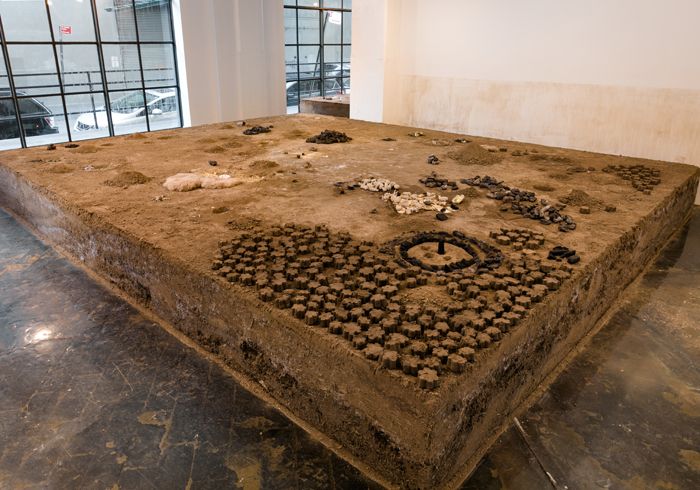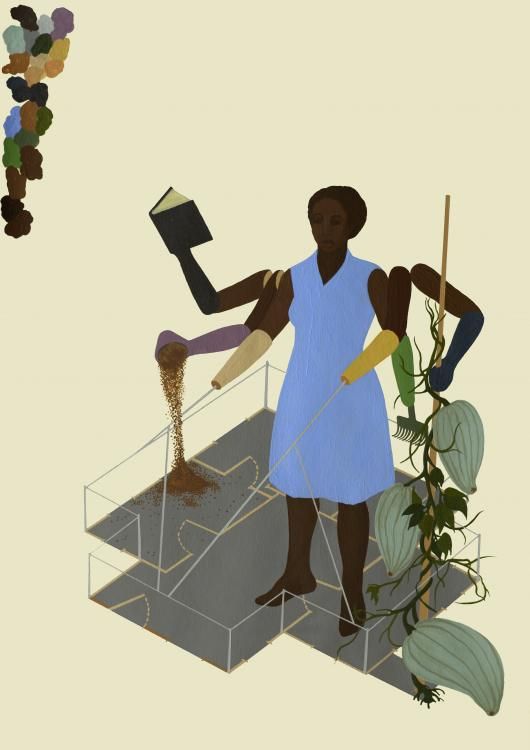Asemahle Ntlonti (2020) Ezonzibileni III. Unthreaded polypropylene bags, soap and goal leaf on canvas. Photography by Matthew Bradley. Courtesty of the artist and What if the World Gallery.
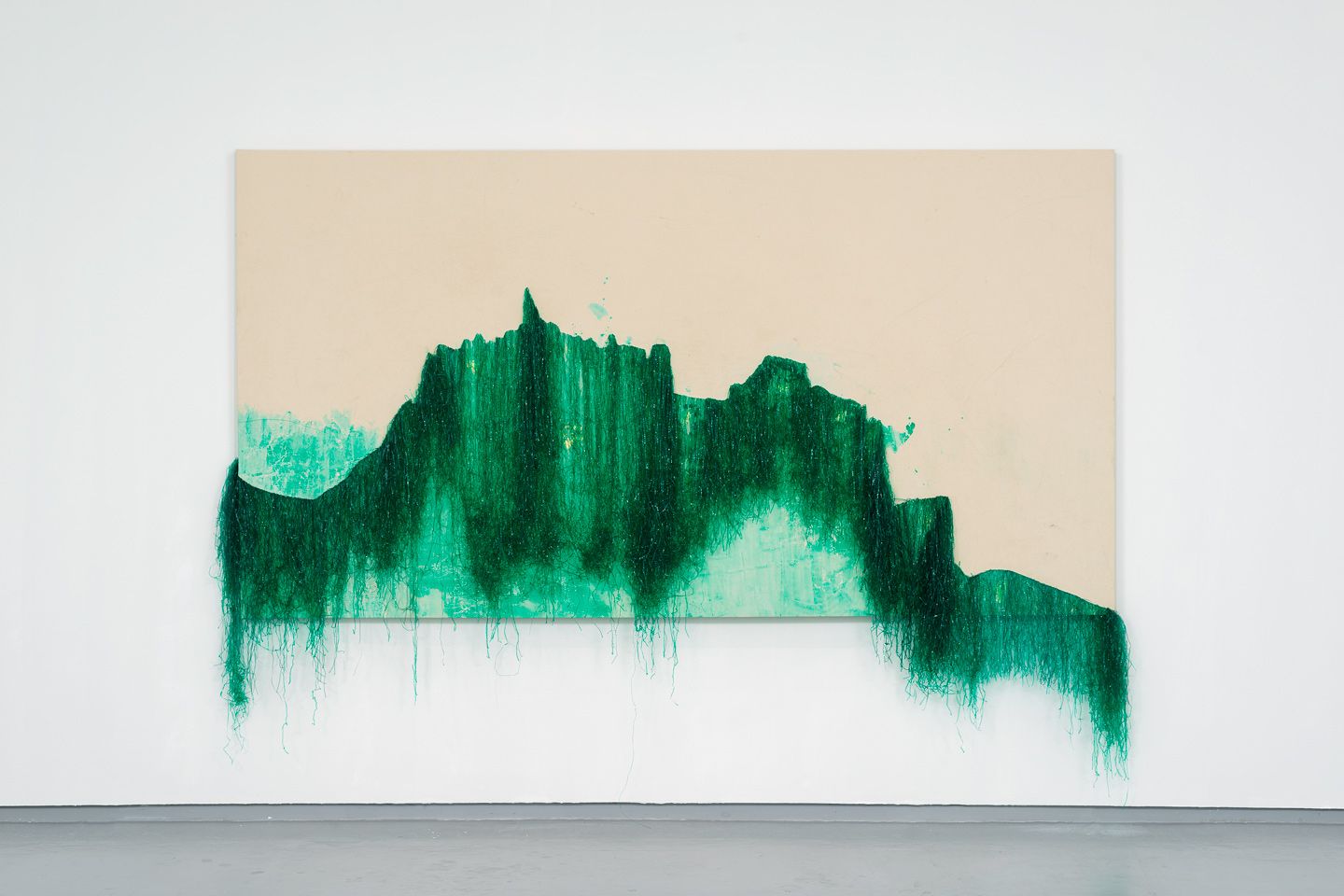
“our imagination was ‘all schooled up’.” – Ivan Illich, Deschooling Society (1973)
Deschooling aims to provide a foundation for thinking about intersectional climate issues and contemporary art together. The project presents a series of conversations with artists, curators and editors, accompanying short texts and a reference guide for further reading. Inspired by Ivan Illich’s critique of institutionalised educational systems, which recognised that “society is the result of conscious designs” that require educational opportunities that are both consciously designed and unconsciously embedded, the project similarly begins by recognising that our reliance on specialised, full-time instruction through formal schooling does not fully equip our imaginations to comprehend and respond to the climate crisis. Here, thinking with and through art towards climate is an opportunity to “find more ways to learn and teach.”
The project aims to ‘deschool’ both the climate crisis and arts criticism by exploring different approaches to engage with intersectional climate issues without those practices being reductively deemed ‘green’ or doom and gloom by asking questions like: What new ways of learning and teaching can deschool imagination? What approaches, methods and skills that can be learnt from creative practice to better communicate climate issues? How can creative practices, like arts writing, be strengthened by a deeper understanding of the climate crisis?
Focusing on contemporary art and writing from South Africa and Nigeria, Deschooling investigates approaches and ways of thinking that are free from institutional baggage or ideological expectation; the different ways that editorial, artistic and curatorial practices come together and lessons that can be learnt for exploring creative practice to develop deeper climate awareness.
Sindi-Leigh McBride
Researcher and writer from Johannesburg, and a PhD candidate at the Centre for African Studies, University of Basel.
6. Towards climate consciousness: a compendium
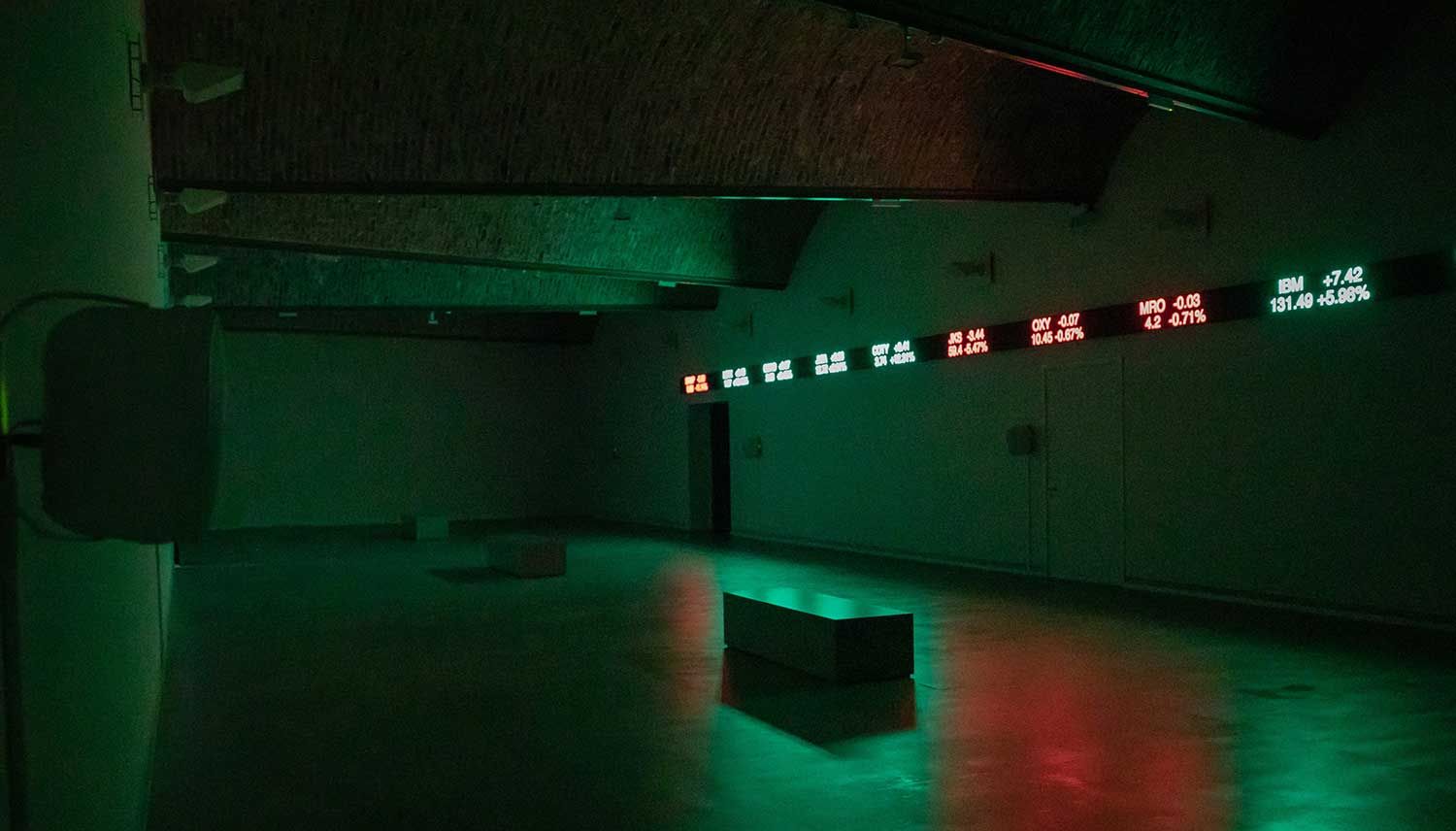
This project was an extended conversation about climate and art, and in the process a wealth of insights and information was exchanged with the editors, curators and artists I spoke with. Read more
2. Communicating without aestheticizing or academicizing

Conversation with Angela Chan, creative climate communicator Read more
Reflecting on Science and Art as Dirge: READ Fellowship Project 2020
Learning together, when doing apart
4. Dialogic processes, decolonial pedagogic practice and humanizing history
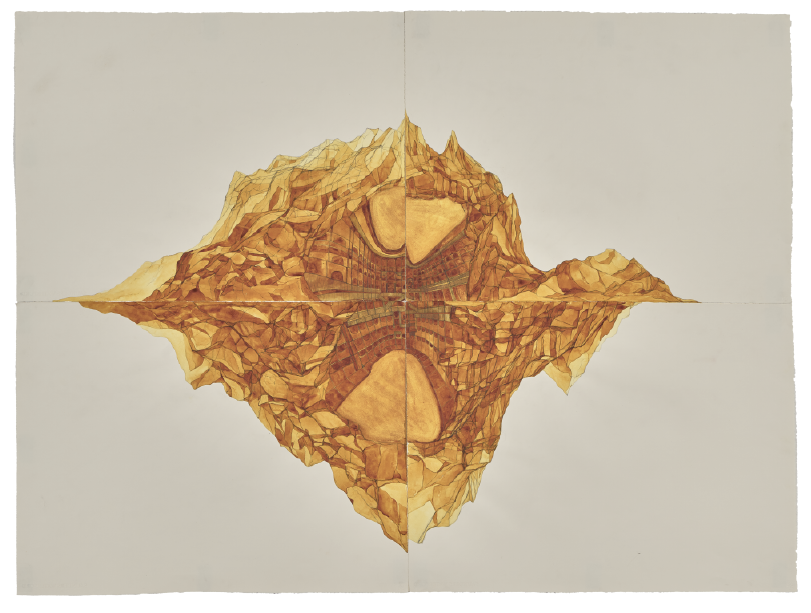
Conversation with Nomusa Makhubu and Nkule Mabaso, curators Read more
3. Knowledge production as radical sharing and curation as care
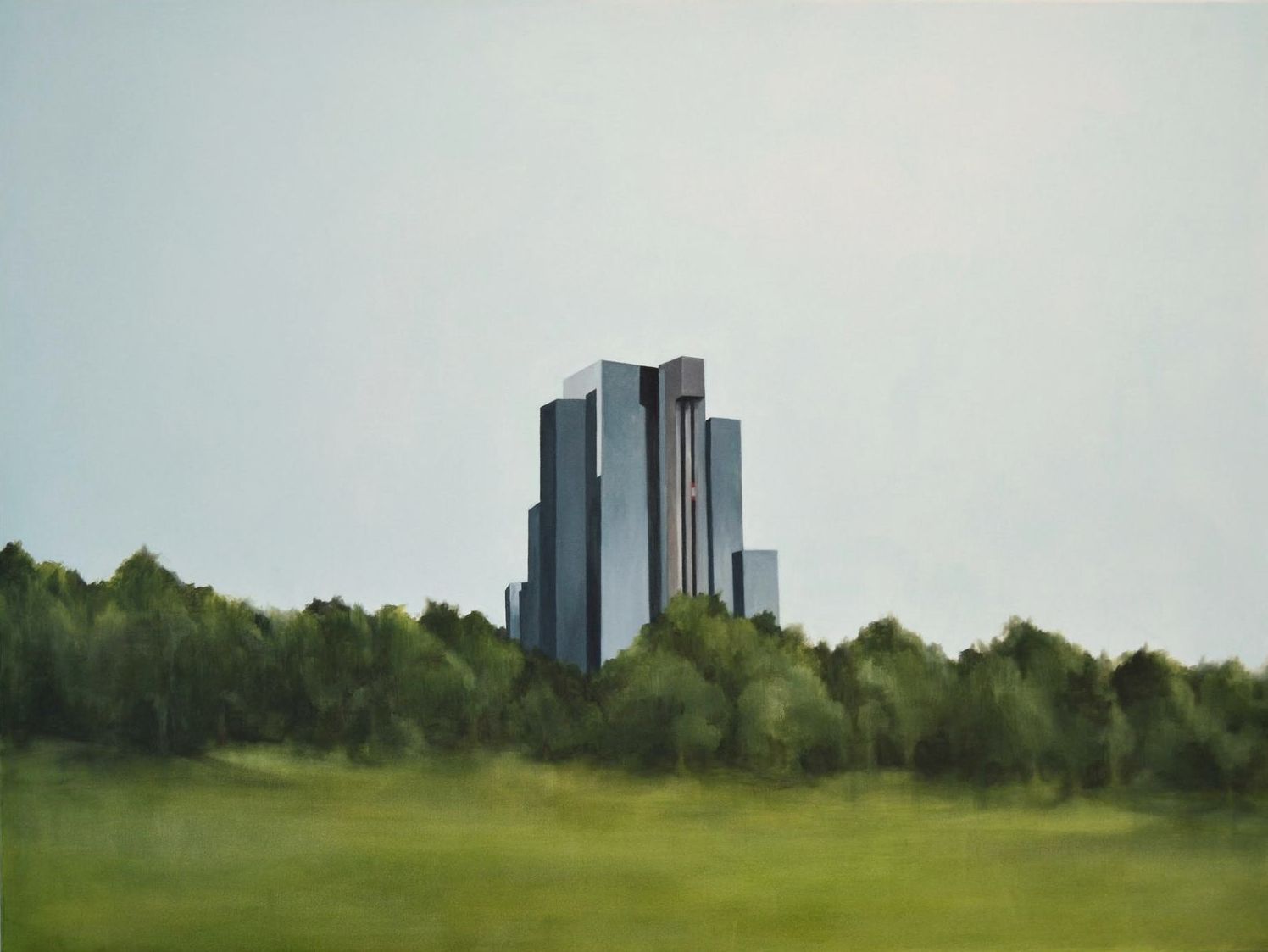
Conversations with Bukola Oyebode and Danielle Bowler, editors Read more
The Coffee Commons

This essay reflects upon the divergent responses to and asymmetrical consequences of COVID19 in McBride’s home country, South Africa, and her country of residence, Switzerland. Part of "Learning from COVID19: Reflections on knowledge-related commons and practices of self-organization amidst COVID19." Read more
